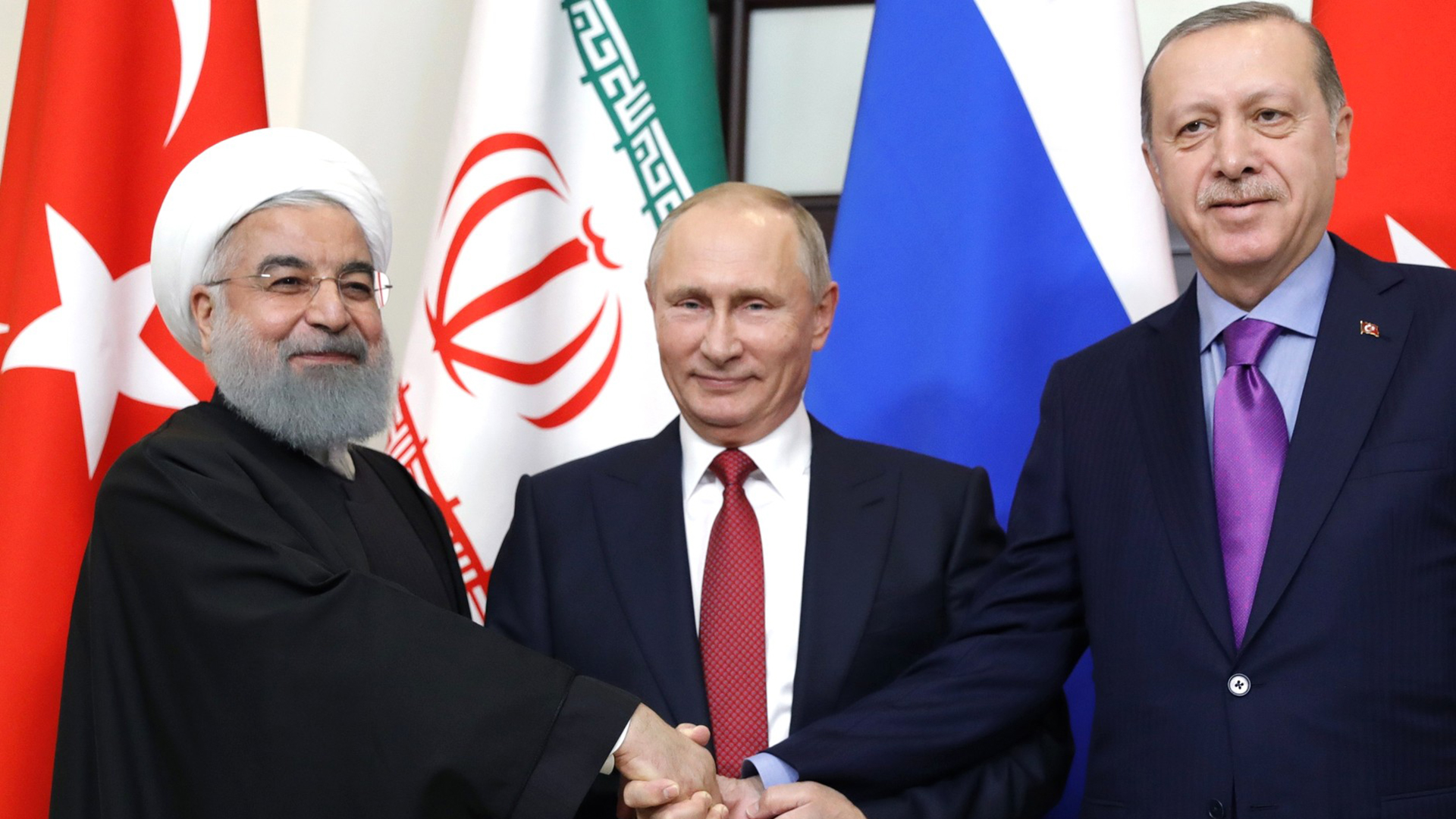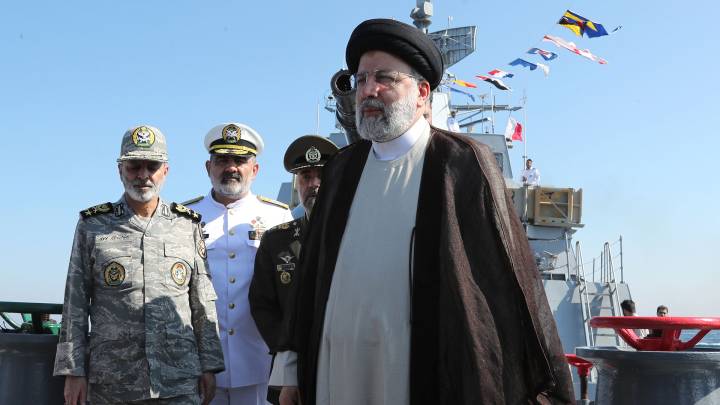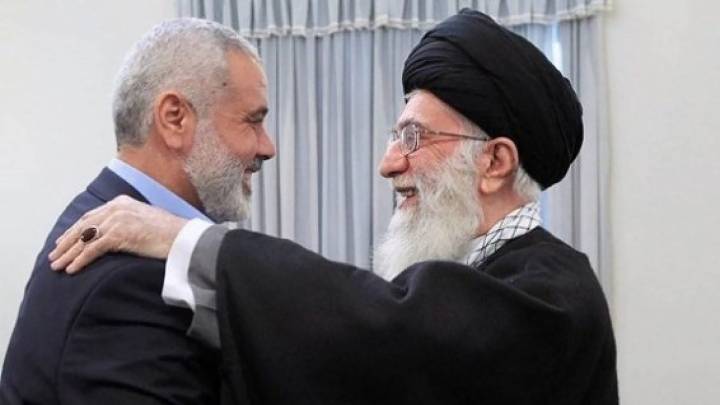Semi-authoritarian regimes throughout the Middle East are looking for ways to combine the fight against coronavirus, populism and crisis management – and to weaken their opponents. To that end, Iran and Turkey are treading a similar path.
The Covid-19 pandemic struck Turkey and Iran at different times, making it difficult to compare the extent of the outbreak in the two countries. However, how leaders in Ankara and Tehran have handled the current crisis can certainly be contrasted. The Islamic Republic of Iran was hit by the pandemic in early 2020 when the country was in the midst of one of its greatest crises. Tehran remains under great pressure internationally, especially from the USA and its Arab allies. Washington’s harsh sanctions against the regime paralyses the Iranian economy, while at the same time the tensions between the US and Iran-backed Shia militias in Iraq make a real confrontation evermore likely.
On the domestic front, President Hassan Rouhani’s reform agenda, which should have been financed by Iran’s reintegration into the world economy, has been left in ruins by sanctions. As a result, Rouhani’s political faction has lost both popular standing and influence within the country’s political arena.
At the same time, however, the increasingly weakened government has been held responsible for the regime’s biggest mistakes. The Revolutionary Guard’s catastrophic relief efforts in response to the increasingly common natural and environmental disasters and the corruption scandals which plague Iranian politics have certainly contributed to the loss of the regime’s reputation. However, nothing has been as damaging to the legitimacy of the regime as the accidental shooting down of flight PS752 on 8 January 2020 by the Revolutionary Guard’s air defence, and the subsequent half-hearted attempts at an investigation.
The decision to hold revolutionary celebrations in February as well as parliamentary elections without any safety precautions was intended to give the impression of business as usual.
The decision to hold revolutionary celebrations in February as well as parliamentary elections without any safety precautions was intended to give the impression of business as usual, but instead helped spread the virus with even government ministers becoming infected. The authorities wasted valuable time and have been criticised for doing so, but they have refused to accept responsibility for their shortcomings.
Instead, Iranian officials blamed the USA for the rapidly deteriorating health situation in Iran, because Western companies were afraid to sell Iran much-needed medical supplies due to American-imposed sanctions. Supreme Leader Ali Khamenei went so far as to speculate in public that the US may have introduced Covid-19 into the country as a biological weapon.
Ultimately, the authorities were too late in imposing restrictions on everyday life. It remains unclear whether the virus was brought to Qom by Chinese theology students studying in the Iranian city, or whether it entered the country by other means. Or indeed why the north-western province of Gilan has been hit so hard by the disease.
A long list of blunders as resulted in Turkey gaining an image as an erratic actor rather than a neo-Ottoman stabilising force.
Iran’s handling of the corona crisis has been heavily criticised both domestically and internationally. Whether Tehran has dealt with the current crisis any worse than other countries is difficult to determine due to an acute lack of transparency as well as international polemics launched against Iran by more extreme elements of the opposition abroad and the USA.
The situation that Turkey finds itself in is striking similar to that of Iran. Here too, the coronavirus met a semi-authoritarian regime haemorrhaging both reputation and popularity among its own population. However, thanks to a referendum-driven populism, President Recep Tayyip Erdoğan has succeeded in concentrating almost all power in his hands alone. The Presidential Palace is therefore solely responsible for all decisions taken.
Over the past few month Ankara’s foreign policies have been dramatically losing ground. It’s a long list of blunders: the Syrian debacle, the constant oscillations between Russia and the USA, the pointless confrontation with the EU over refugees, the adventure in Libya and finally the escalating conflict over the gas fields in the eastern Mediterranean. All of which has resulted in Turkey gaining an image as an erratic actor rather than a neo-Ottoman stabilising force. Political difficulties at home only compound Ankara’s predicament. Add to this the self-sabotage of the Turkish economy and now the government’s handling of the coronavirus pandemic.
The imposition of curfews reminds many in Turkey of the country’s militaristic past.
Akin to Iran, the Turkish authorities were sluggish to adopt the necessary measures against the virus, such as social distancing. The public was particularly dismayed by how the authorities dealt with pilgrims returning from the Umrah to Mecca. They were allowed to fly into the country unhindered and proceed to their homes throughout Turkey without being examined or quarantined. The government has been criticised for their inaction and for prioritising profit because for the Diyanet, Turkey’s Directorate of Religious Affairs, this type of pilgrimage represents an important revenue stream.
Interestingly, the closure of mosques and other religious institutions was carried out with minimal fuss, which raises the questions whether the faithful would have gladly followed such instructions if they had been issued by a secular government. While Turkish civil society supports the government’s measures, especially the call to limit social contact, it is painfully aware of the irony of the situation. The imposition of curfews reminds many in Turkey of the country’s militaristic past. This view is quite possibly shared by Erdoğan himself who has so far refrained from deploying the army during the crisis.
Health Minister Fahrettin Koca’s handling of the crisis has garnered popular approval. Nevertheless, the coronavirus is likely to hit Turkey especially hard because many provinces offer lower than average standard of healthcare. Despite this, the thought of reinstating the doctors and nurses dismissed as a result of the failed military coup in 2016 has not yet crossed the Turkish government’s mind. The extent to which Koca’s appeal to private clinics to treat those infected with the virus free of charge will relieve the pressure of the public health system is as yet unknown. Conveniently Koca himself is the owner of a chain of private hospitals.
Political inmates such as Selahattin Demirtaş, the country’s main opposition leader, remain incarcerated while criminals were given early release.
Any fundamental change in Turkish policy is all but unthinkable, even under the current conditions. The political constellation is too rigid and the opposition’s room for manoeuvre on a municipal level is limited to political point-scoring over the handling of the coronavirus, such as that attempted by Istanbul’s mayor, Ekrem İmamoğlu.
The coronavirus is likely to harm the groups that recently split off from the AKP the most, because it is expected that in times of crisis former AKP voters will flock back to the party. As the already high death toll climbs higher, Erdoğan will certainly have to endure more pressure in the weeks to come, but he still controls the media and is by far the country’s most talented populist.
His desire not to give political dissidents an inch is evidenced by his attitude to those in prison. Political inmates such as Selahattin Demirtaş, the country’s main opposition leader, remain incarcerated while criminals were given early release. This practice – releasing criminals while keeping political critics in prison – is straight out of the Iranian manual. In times of crisis, semi-authoritarian regimes always make it crystal clear whose book they take a leaf out off.
Walter Posch is a historian specialising in modern Iran. He is currently a researcher at the Institute for Peace Support and Conflict Management (IFK) in Vienna.




